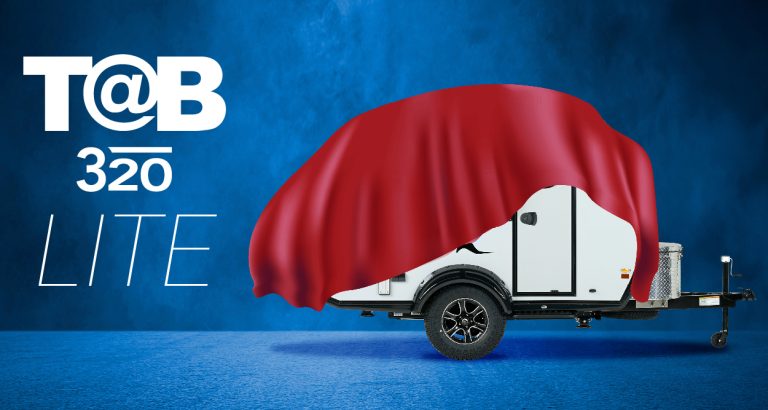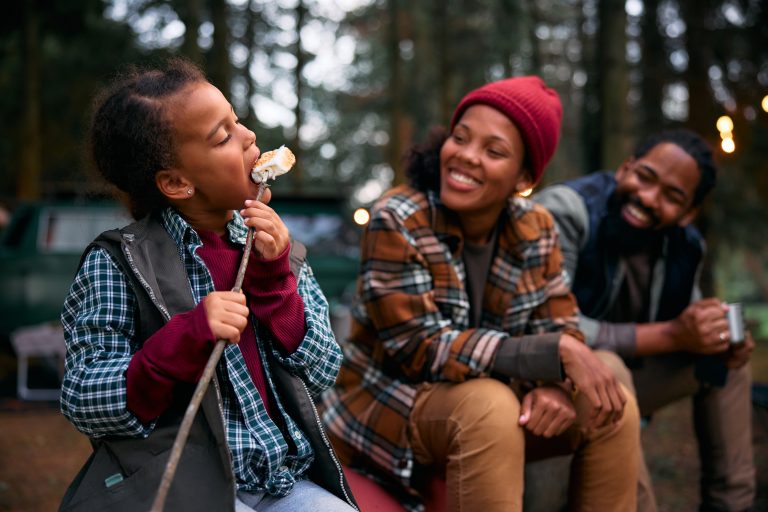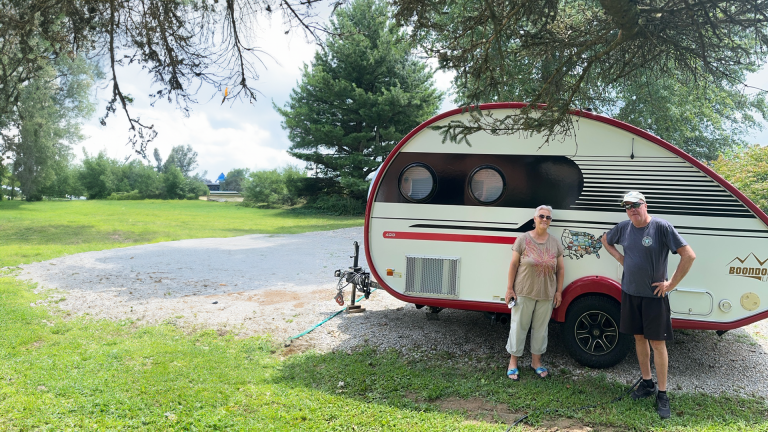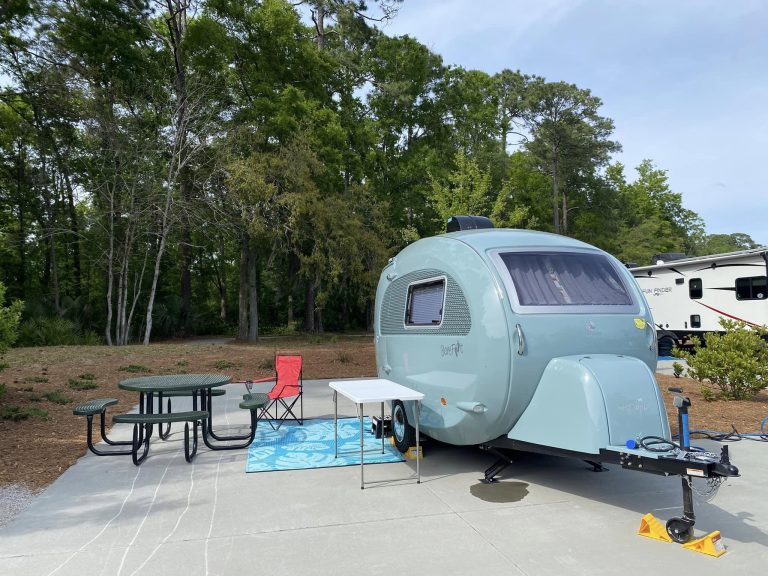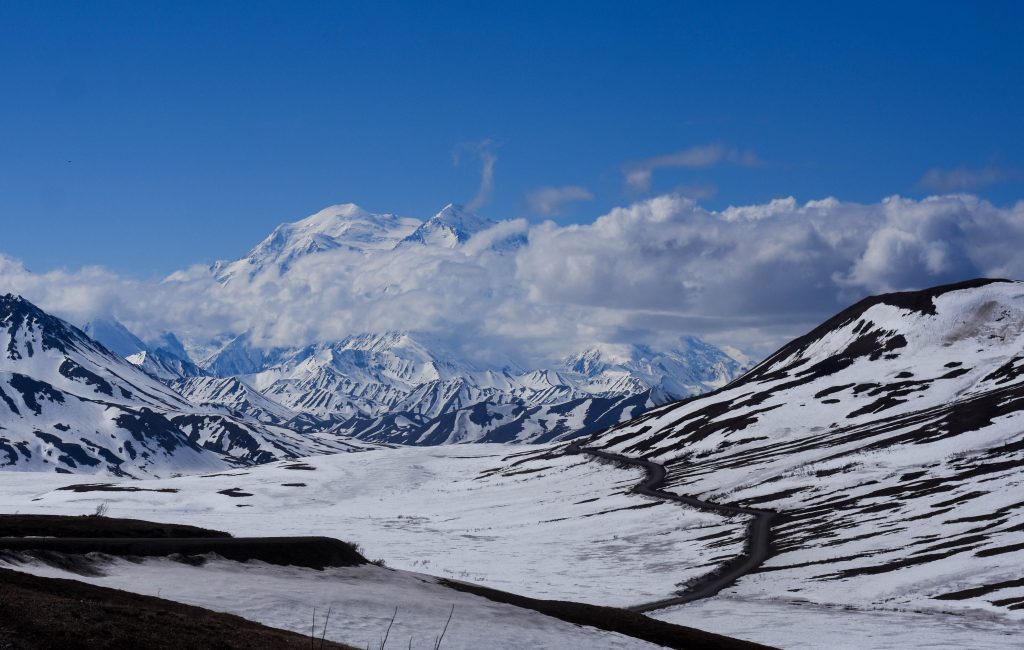Imagine more than six million acres of wildland, bisected by a single road—the 92-mile-long Denali Park Road—that takes visitors through low valleys, high mountain passes, and beautiful landscapes. That is what you’ll find in Denali National Park and Preserve, a Biosphere Reserve and home to grizzly and black bears, wolves, caribou and moose as well as golden and bald eagles, and many other forms of wildlife including Dall sheep—the protection of which was the main reason Congress created the park in 1917. And of course, there are sled dogs, although during the pandemic the kennels are closed to visitors.
Getting to Denali is comparatively easy. Alaska State Route 3 (also called the George Parks Highway) connects Denali with Anchorage (five miles south), and Fairbanks (two miles north). Other options are the Alaska Railroad (operated by the State of Alaska) or by private plane, landing at a small private airstrip near the park entrance.
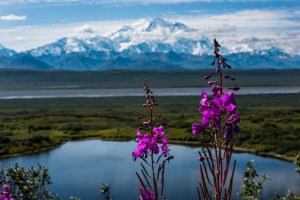
But visiting Denali requires planning and advance awareness of the terrain and the weather. There is no entrance gate, meaning you can visit any time of the day or night. Denali Park Road is open only during the summer for public (non-commercial) vehicles. The rest of the road is limited to human-powered locomotion (biking, hiking, etc.). Keep in mind that only the first 15 miles of Denali Park Road are paved.
Another option is to take any one of the following bus tours: non-narrated transit buses narrated tour buses and free buses operated by the park’s commercial partner, Doyon/Aramark Joint Venture. Review the Joint Venture’s statement on COVID-19 to learn more about bus rides during the pandemic. (Note: Several buses each day are equipped with a wheelchair lift, with more details about accessibility available here. Go here for details about child restraint laws in Alaska.)
Once you arrive, there is plenty to do: hiking (on and off-trail), biking, flightseeing, wildlife viewing or just enjoying the scenery. Go here for some suggested trip itineraries, here for information about backpacking in Denali, and here for a guide to Denali’s backpacking units.) You can also watch the Alpine Tundra Webcam to check conditions for hiking, skiing, and other outdoor activities. Wilderness and wildlife safety information for Denali is available here.
Weather
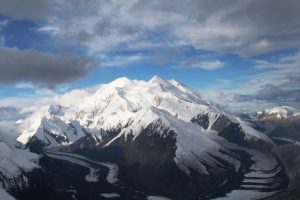
The summer season in Denali runs from May 20 to mid-September. If you visit outside that timeframe, be prepared for unexpected weather including snow, which can lead to road closures. January temps that can drop to -40 degrees. (Go here for more details about Denali weather and here for visiting in spring or fall.)
Visitor Centers
There are three primary visitor centers in Denali: the Denali Visitor Center, Eielson Visitor Center, and Denali Bus Depot. The Walter Harper Talkeetna Ranger Station (open year-round) serves as the center of mountaineering operations, with rangers providing an orientation to the mountain and climbing permits as well as some visitor services. (Go here for FAQs about mountaineering in Denali.) The Murie Science and Learning Center also acts as the winter visitor center and is open nearly every day of the year. Check the website for information on closures and seasonal exceptions.
Entrance Fees
Denali charges an entrance fee year-round, with some activities, like summer bus trips or staying in park campgrounds, at additional cost.
Campgrounds
Denali has three RV and/or tent campgrounds (232 total sites) and three tent-only campgrounds (42 sites): Wonder Lake, Igloo Creek, and Sanctuary River. (Note: vehicles can only camp in established, open campgrounds in the park, not along pullouts or
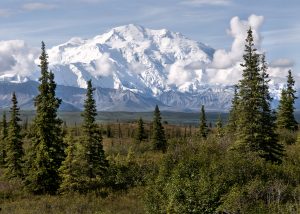
roadsides.) Campground fees range from $12 to $27 per night and are free in winter (roughly late September to early May each year). Senior Pass and Access Pass holders receive 50% off nightly camping fees. Check the website for additional campground information including closures.
RV and other vehicle camping are available at Riley Creek, Savage River, and Teklanika River, although vehicles over 40-feet long can’t be accommodated. There are no electrical or water hookups for RVs, but all the campgrounds have toilets (some flush, some vault-style), and all but Igloo Creek and Sanctuary River have potable water. There are also campgrounds outside of the park.
COVID-19 Response
Before visiting Denali National Park and Preserve, please check the park website for updates. National Parks are managed by National Park Service (NPS) park rangers under the U.S. Department of Interior. Following guidance from the White House, Centers for Disease Control and Prevention, and state and local public health authorities, the National Park Service is increasing access and services in a phased approach across all units of the National Park System. Visitors must wear face masks in federal buildings, including visitor centers, historic structures, and museums. Visitors are required to wear masks outdoors when physical distance cannot be maintained on NPS-managed lands. More updates about the overall NPS response to COVID-19, including safety information, are posted on www.nps.gov/coronavirus.
Denali National Park and Preserve, AK—Physical Address: Mile 237 Highway 3, Denali Park, AK 99755. (Latitude and longitude of the park entrance: 63.728443, -148.886572.) Mailing Address: PO Box 9, Denali Park, AK 99755. Phone: 907-683-9532. Website: https://www.nps.gov/dena/index.htm
More travel blogs
Interested in more travel blogs? Check out these articles:
- Badlands National Park
- Everglades National Park
- National Park Road Trip: Acadia National Park
- Cuyahoga Valley National Park
Recent Articles
